
Kennesaw State students dig through archives to grasp educational landscape for Black teachers
KENNESAW, Ga. | Feb 17, 2025
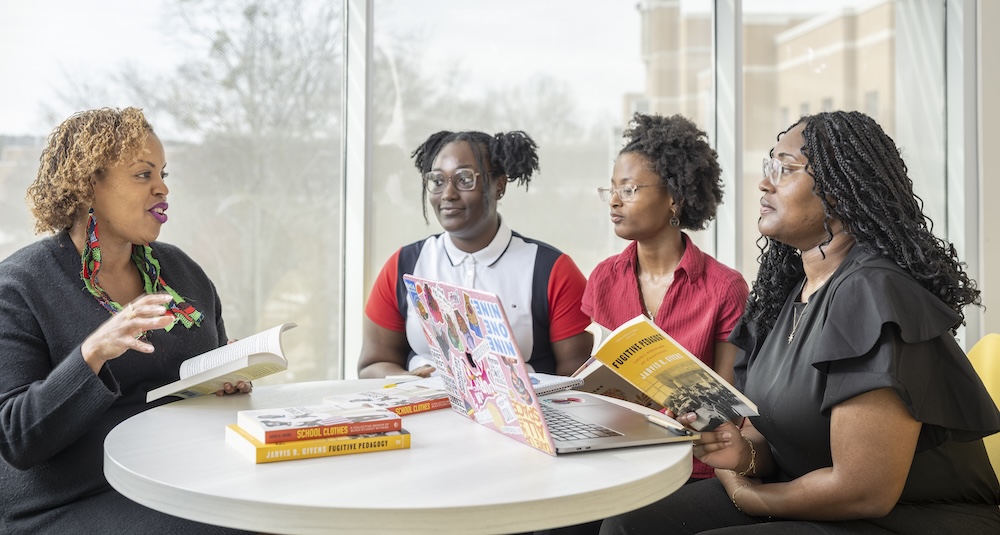
The program is designed to introduce first-year students to the undergraduate research experience at KSU, pairing them with a faculty mentor to oversee the process. Students also have an opportunity to present their findings at discipline-specific conferences and at the KSU Symposium of Student Scholars.
Led by professor Marrielle Myers, who holds a doctorate in mathematics education, the student project “A Light for Our Path: Using the Black Teacher Archive to Unpack Excellence & Articulate Change in Educational Practice” explores the Black Teacher Archive, a public database showcasing the intellectual, political and cultural contributions of Black educators in the U.S. before, during and after the Civil Rights era.
The archive is a Harvard University tool containing more than 50,000 pages of primarily serial publications authored by Black educators from professional organizations once called “Colored Teachers Associations,” gathered from 70 repositories across the country.
During a research symposium hosted by the Bagwell College of Education last spring, Myers heard from Harvard professor Jarvis Givens, founder of The Black Teacher Archive and author of “Fugitive Pedagogy.” His book chronicles the efforts of Carter G. Woodson, a central figure in the struggle for Civil Rights and equity in public education, recognized for his role in establishing Black History Month.
Myers was inspired by his work.
“The documents captured in the Black Teacher Archive show a lot of collective organization,” Myers said. “I think that type of thing is important for teachers to understand — how do we do the work of providing an equitable educational experience where all students can thrive? We’re going to talk about how we create meaningful experiences that honor the differences.”
The project applies the Ghanaian principle of sankofa, or “going back to get what we need,” grabbing for solutions of the past to overcome current challenges. It also uplifts the archive as a place of personal healing, offering relatability and kinship.
“We don't necessarily realize the kinds of things that have happened historically that may be able to influence our experiences or provide context for our experiences,” Myers said.
Out of the several applications submitted for her First-Year Scholars project, Myers landed on Aubry Robertson, Aryanna Finch and Ah’Zaiah Rolle — students in different degree programs at KSU, but who are all Black women, interested in gleaning knowledge from the Black educators featured in the archive.
Robertson, an elementary education major, plans to take what she learns working with Myers and apply it to her future career.
“I feel like it was important for me as an up-and-coming teacher to learn about the practices Black teachers had during those times, when there was more restriction, so I would know a little background about myself and my history as well as learning about the history of the education system,” Robertson said.
She is an active member of Black Teachers Matter, a student organization at KSU whose mission is to help educators navigate and center a variety of Black perspectives in the field of education as well as challenge system norms. The group has also used the Black Teacher Archive to understand movement as a Black educator, then and now, with the direction of Myers, a co-advisor.
“What practices can we institute? What subjects do we need to learn? What stereotypes and biases do we need to face in ourselves and as well as other people?” These are the questions Robertson said she plans to answer through the First-Year Scholars project.
“The archive really has changed my point of view of education as a whole and then, of course, what I want to be and who I want to become as an educator,” she said.
Finch, whose major is in theater and performance studies in the Geer College of the Arts, said she identifies with the Black educators featured in the archive because of the theater’s ability to also influence a generation.
“Like dance and theater, the archive is keeping stories alive,” Finch said. “There’s also a similarity in the empathy found between teachers and students. Being in theater, I've had to be empathetic with characters or empathetic with the stories I’m telling.”
Prefacing the project’s goals, Myers references research that shows the higher success rate of students from historically marginalized groups when they work with teachers from the same backgrounds. One outcome of the project is to show the overlap between Colored Teachers Associations, featured in the Black Teacher Archive, and Black-focused education reform today.
Rolle, looking to major in sports management, sees herself in the archive. Several of her family members have either been teachers or are currently in the classroom.
“This topic hits close to home, and it’s helping me gather knowledge on what teachers had to go through,” she said.
– Story by Amber Perry
Photos by Darnell Wilburn
Related Stories
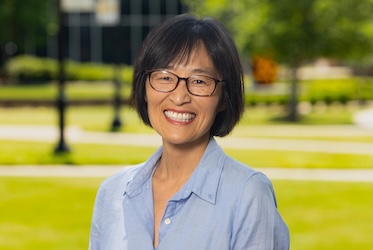
Kennesaw State professor earns Mid-Career Award from American Educational Research Association
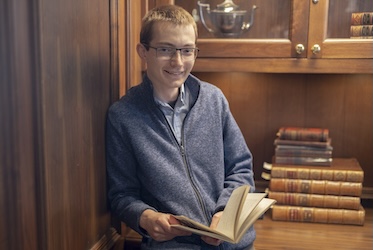
First-year Kennesaw State student, author recognized as versed local historian
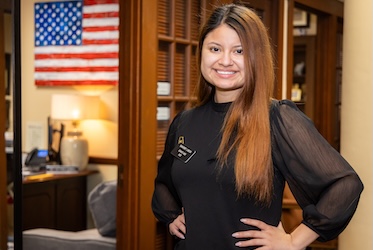
Kennesaw State students immersed in the work of the Georgia General Assembly
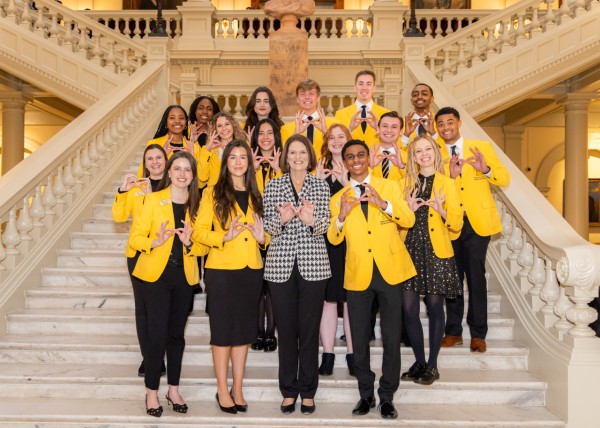
Day at the Capitol: Kennesaw State community members visit with legislators under the Gold Dome
A leader in innovative teaching and learning, Kennesaw State University offers undergraduate, graduate, and doctoral degrees to its more than 47,000 students. Kennesaw State is a member of the University System of Georgia with 11 academic colleges. The university’s vibrant campus culture, diverse population, strong global ties, and entrepreneurial spirit draw students from throughout the country and the world. Kennesaw State is a Carnegie-designated doctoral research institution (R2), placing it among an elite group of only 8 percent of U.S. colleges and universities with an R1 or R2 status. For more information, visit kennesaw.edu.














